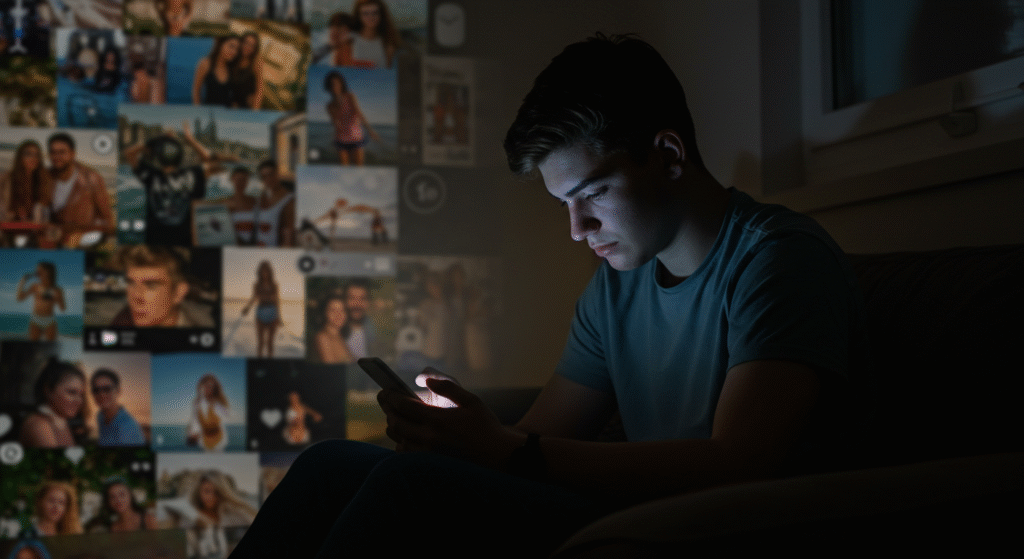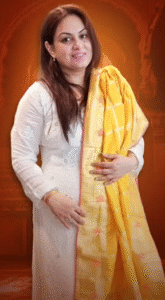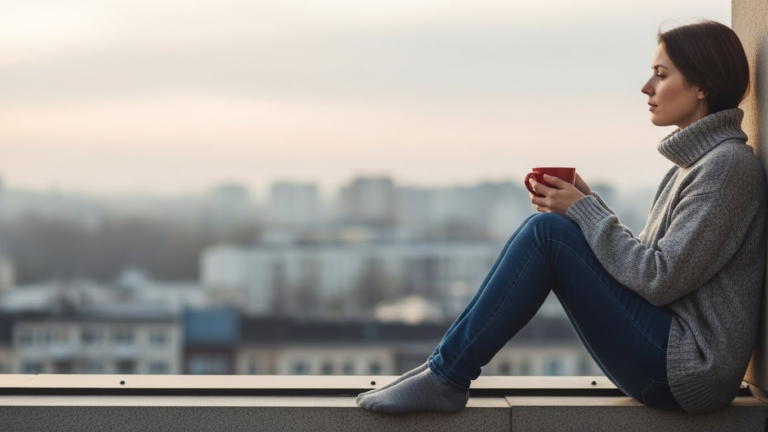
I am the best in my own way reflects the strong sense of individuality and mindset. Remember it’s a performance.
People tend to present their best selves online, and it’s easy to fall into the trap of comparing your behind the scenes to someone else’s carefully curated frontstage. Social media platforms often showcase crafted images, not the full picture of someone’s life. Showing yourself more compassion and focusing on inner beauty and talents can combat being overly self critical.
Have you ever wondered how we decided as a world what we thought was beautiful? What’s beautiful? Dark skin or light skin? Big eyes or small eyes? Long noses or short ones? Big foreheads or narrow foreheads? Curly hair or straight? Tall or short? Thin or curvy ? The list goes on! And as we go down the list of attributes – you start to realise that beauty looks like a Hollywood actress. And a lot less like our grandmothers. And that’s really sad – because I think we come from a line of beautiful women who we don’t celebrate!
Now, have you ever thought about how people believe they need to look pretty, meaning having fair skin, being about 5’5” tall, having straight hair, and being slim? Where did these ideas come from, and why are they so common? You will see these standards everywhere- in ads, on television shows, and even beauty products like fairness creams and colored contact lenses.
Here I’ll be talking about Eurocentric beauty standards and how they relate to the media. The concept means that “euro” as in Europe – has become the centralised idea of what is considered beautiful! And that’s why you see on screens!
The media is often seen as a reflection of culture, but many movie and casting directors tend to look for actresses who fit Eurocentric Beauty Standards- the fair and slim and tall and light eyed model. Meanwhile, they usually choose men who look a lot more like the men in our families for other roles, while women with darker skin or different body types are seriously underrepresented.
Have you noticed that in Indian movies, the main Indian couple usually performs in the front, while the background answers are from other countries, European of western countries? It’s like they do this to attract attention, as if somehow they are enhancers of beauty in a way that women from our own country of culture aren’t! And also as a side note directors how come for the rest of the film all the extras look like us and suddenly when the song begins it’s like a small European travel group just landed into the scene? Where do they come from?
This kind of thinking it’s pretty common in Indian families, too, but we often ignore it.Have you ever heard someone say, “Didi, Your daughter is very healthy looking na;Who will marry her?” Or maybe, “ She looked better in the photo; That skin color won’t suit our son,” even when the boy himself is dark-skinned. Why is this kind of judgement only aimed at women? Today, over 90% of adult women report not being satisfied with their bodies. However, understanding where that data comes from would make this point even stronger and more credible.
I’ve had moments where I stood in front of the mirror, thinking it wasn’t enough because of the pressure to have a flat stomach. Sometimes, as teens, we feel everyone is focused on our appearance, making us anxious to fit into society’s idea of beauty. It’s important to acknowledge that while these beauty standards predominantly affect women, individuals from other marginalised groups also face challenges that deserve recognition.
It might seem like beauty standards don’t exist anymore, but they are still very real. We’ve just accepted this discrimination over time. After centuries of European colonization, Eurocentric beauty standards became global. Using social media apps like TikTok, Snapchat, Instagram, Facebook can make things even worse. While we might scroll through, like a friend’s picture, we often get distracted by ads showing images of beauty and health. And guess what? Those ads usually feature girls who don’t look like us on the cover, reminding us of what we may feel uncomfortable about in our own bodies. This can push people to unhealthy extremes, like bingeing, purging, or avoiding food just to fit a certain body type.
But it’s not all hopeless! There are individuals, brands, media outlets that are beginning to promote board of directors and diversity presentations of beauty. This gives us hope and shows us the changes are flexible. So what can we do about this.We need to challenge these beauty standards and embrace all body types,skin colors and unique looks. Let’s celebrate diversity and remember that beauty is not just about fitting into a mold it’s about being ourselves.
Life is messy. One day, we can feel like we are on cloud nine, and the next thing you know, it feels like it’s all going downhill. But we don’t see that side of life on social media. We see the good side that we all wish we would live 24/7. We see the highlights of someone’s life not the chaos life can be at times. Everyone has bad days, and no, it’s not just life throwing rocks at you.
Mindset as a filter:
Social media can be shaped by an individual’s mindset. A positive and agentic might lead to more mindful social media use and better outcomes, while a negative and a low mindset might lead to increased anxiety and distress.
Social Media as a Mirror:
Mindset and social media are interconnected. Someone with a fixed mindset might interpret social media as a place of constant judgement, while someone with a growth mindset might view it as a place for learning and connection.
Mindful consumption:
Unfollow accounts that trigger negative or unrealistic feelings. Actively curate your feed, limit your usage, and shift focus to your own goals and experiences.
Practice gratitude and identify your strengths:
Focus on the positive aspects of your life and appreciate what you have. Recognize and celebrate your own accomplishments and positive qualities. Instead of comparing yourself to others, concentrate on your goals and your journey. Spend time on things that you like and which make you feel good.
Connect with others:
Spend time with family and friends in real life. Spend time in nature. Pursue your hobbies and boost your self esteem by always practising meditation and fitness as a lifestyle.
Surround yourself with a good online support, group of people who empower and motivate you, not people who make you feel bad. Be the love you never received. Be the change you wish to see online and offline as well!






2 Responses